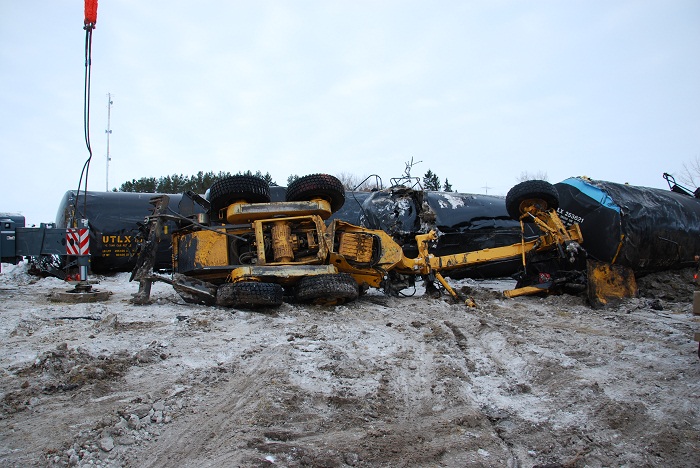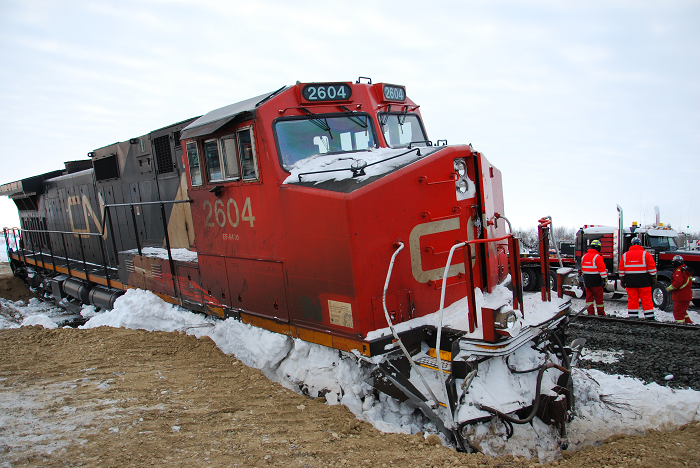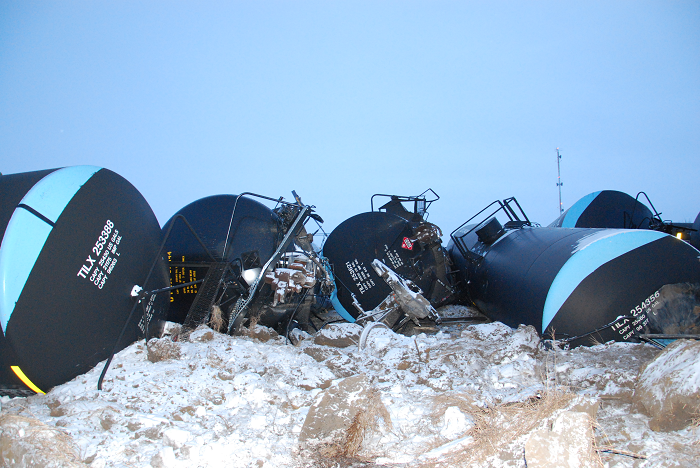Crossing collision
Canadian National Train L51141-23
Mile 33.70, Blackfoot Subdivision
Paynton, Saskatchewan
The occurrence
On 24 January 2013 at 0856 Central Standard Time, eastbound Canadian National train L51141-23 struck a road grader that had stopped on the public grade crossing at Mile 33.70 of the Blackfoot Subdivision. As a result of the collision, the road grader was heavily damaged and the grader operator sustained fatal injuries. The train crew were not injured. Thelocomotive and 16 tank cars carrying dangerous goods derailed. Approximately 106,000 litres of crude oil was released from 4 cars.
Media materials
News releases
Diminished effectiveness of locomotive horn contributed to 2013 crossing accident near Paynton, Saskatchewan
Read the news release
Deployment notice
Transportation Safety Board of Canada deploys a team to the site of a rail accident near Paynton, Saskatchewan
The Transportation Safety Board of Canada (TSB) is deploying a team to the site of a rail accident near Paynton, Saskatchewan. At approximately 08:00 MST, a CN freight train struck a road grader. The locomotive and 16 cars derailed, including some carrying heavy fuel oil. The TSB will gather information and assess the occurrence.
Download high-resolution photos from the TSB Flickr page.
Class of investigation
This is a class 3 investigation. These investigations analyze a small number of safety issues, and may result in recommendations. Class 3 investigations are generally completed within 450 days. For more information, see the Policy on Occurrence Classification.
TSB investigation process
There are 3 phases to a TSB investigation
- Field phase: a team of investigators examines the occurrence site and wreckage, interviews witnesses and collects pertinent information.
- Examination and analysis phase: the TSB reviews pertinent records, tests components of the wreckage in the lab, determines the sequence of events and identifies safety deficiencies. When safety deficiencies are suspected or confirmed, the TSB advises the appropriate authority without waiting until publication of the final report.
- Report phase: a confidential draft report is approved by the Board and sent to persons and corporations who are directly concerned by the report. They then have the opportunity to dispute or correct information they believe to be incorrect. The Board considers all representations before approving the final report, which is subsequently released to the public.
For more information, see our Investigation process page.
The TSB is an independent agency that investigates air, marine, pipeline, and rail transportation occurrences. Its sole aim is the advancement of transportation safety. It is not the function of the Board to assign fault or determine civil or criminal liability.


